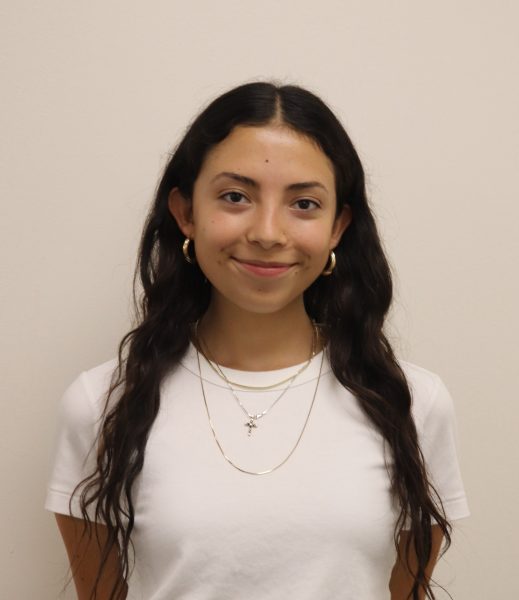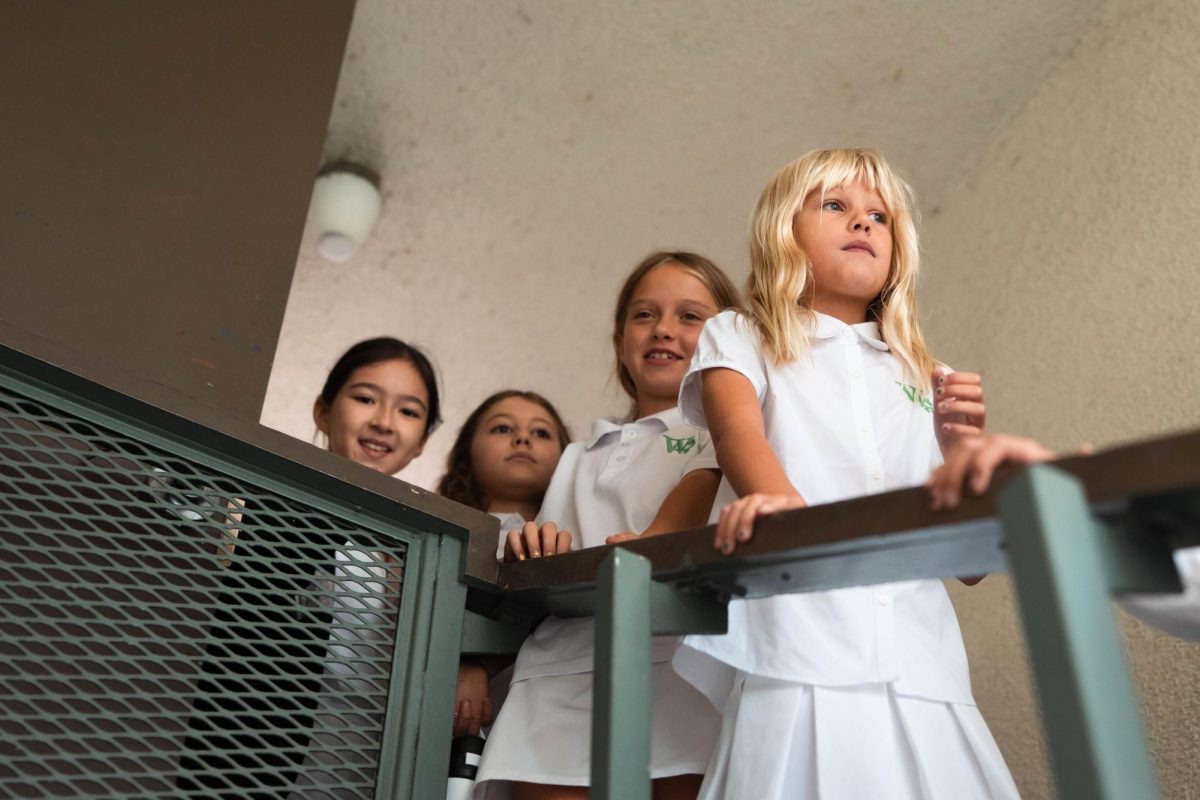Ever noticed the blue, green, and black bins placed around campus? Or the recently-added compost bins? Maybe even paid attention during a sustainability assembly? Unfortunately, the answer for some people on Westridge campus is “No” to each of these questions.
Recently, Westridge has strived for cleaner and more sustainable practices on campus, integrating initiatives like accessible composting; reusable plates, bowls, and silverware at the Commons; and regular assemblies about environmental issues. Spearheaded by the ASB Sustainability Heads, Lindsay C. ’25 and Lily J. ’25, members of Green Guerrilla Club, and proactive faculty members like Service Learning Coordinator Ms. Erica St. John and STEAMwork Coordinator Mr. Mick Lorusso, these environmental efforts have been often ignored by students.

(Lilah R.)
The Westridge community is especially struggling with sustainability around meals—composting leftover food, sorting trash into the correct bins, and returning the reusable dining ware to the proper boxes. Mr. Lorusso spoke about student attitudes towards these efforts, saying, “There’s just generally a culture of not caring—like once you put it in a bin it’s out of sight, out of mind; and we need to develop a culture of understanding that everything on this planet is connected.”
From the student perspective, properly sorting trash can feel like an inconvenience.
Isla R. ’25, a student who buys lunch from the Commons almost everyday, says she recycles and composts, but only when it’s easy for her. “I see all the bins, but I’m not always disposing of my trash and stuff in the right bins, because sometimes they’re far away,” she said.

Like Isla, many students feel comfortable with not sorting their trash for the same reason Mr. Lorusso speculated. Isla added her reasoning behind not recycling, saying, “I know it’s not good [to not recycle], but I am not always thinking about where my trash should go, and I guess because I’m not seeing the immediate effects of recycling, I don’t think there’s great value in it”.
For other students, not recycling or composting can come from forgetfulness.
“I sometimes remember to recycle, mainly I just throw all my food in the compost bins and the rest goes in the trash. I try to remember to [recycle], but I still don’t really know which types of plastics can be recycled,” said Bianca P. ’29.
For leaders of sustainability conversations and goals for a cleaner, greener Westridge campus, the student response to these initiatives is disheartening.
ASB Co-Sustainability Head, Lindsay C. ’25 feels defeated.“It’s annoying because some people put in effort to recycle but it all goes to waste when others aren’t putting in the same effort.”

Besides Westridge students not properly sorting their trash, many are also not returning reusable plates, bowls, and forks. Last year, the previous ASB Sustainability Head, Anna K. ’24, worked with Brandon Worrell, Director of Dining Services, to provide reusable utensils and dish-ware in the Commons. However, that hard work might now be futile. Since bringing back the reusable items, Brandon claims that almost half the reusable plates have been lost, creating a challenging task for the Commons staff during lunch times.
“We found that a lot of dishes were being thrown away in the trash, and then the turnaround time for some days between Middle School and Upper School [lunch] left us short without dishes,” said Brandon.
Due to the loss of many dish-ware items, the Dining Service team is considering getting rid of the reusable plates and utensils and returning to the disposable items all together.
Lily J. ’25, one of current Sustainability Co-Heads, discussed her own emotions surrounding the potential return of disposable plates, “It’s really frustrating, because it does cost us a decent amount of money to provide plates, utensils and everything for the Commons.” She continued, “It also took a lot of effort trying to get the reusable dish-ware, we went through a whole process of getting this [initiative] back, especially after COVID.”

Students misplaced a majority of the dishes in the Science Patio, as there are no bins for returning plates in that area. Upper School Science Teacher Dr. Ryan Skophammer said, “At the beginning of the year there were plates left everywhere, and now we have a bin from the Commons and the Science Patio is a part of their rounds for picking up plates; so I see the plates in the bins now, as opposed to lying on trash cans or table tops”.
Although the Dining Service team is working hard to keep their plates, Brandon says there is still a high chance of removing the reusable dish-ware, especially if there is no change towards properly sorting trash and placing dishes in the proper areas.
The Westridge Sustainability team works hard to make greener choices on campus, but without the help of the Westridge community, their work will be ineffective. Lily J. said, “It’s really frustrating how people disregard that, and they will leave their plates and utensils either in the trash cans or wherever and they disappear—it’s just a waste of our school’s resources, time, and money.”




























![Dr. Zanita Kelly, Director of Lower and Middle School, pictured above, and the rest of Westridge Administration were instrumental to providing Westridge faculty and staff the support they needed after the Eaton fire. "[Teachers] are part of the community," said Dr. Kelly. "Just like our families and students."](https://westridgespyglass.org/wp-content/uploads/2025/03/dr.-kellyyy-1-e1748143600809.png)





























